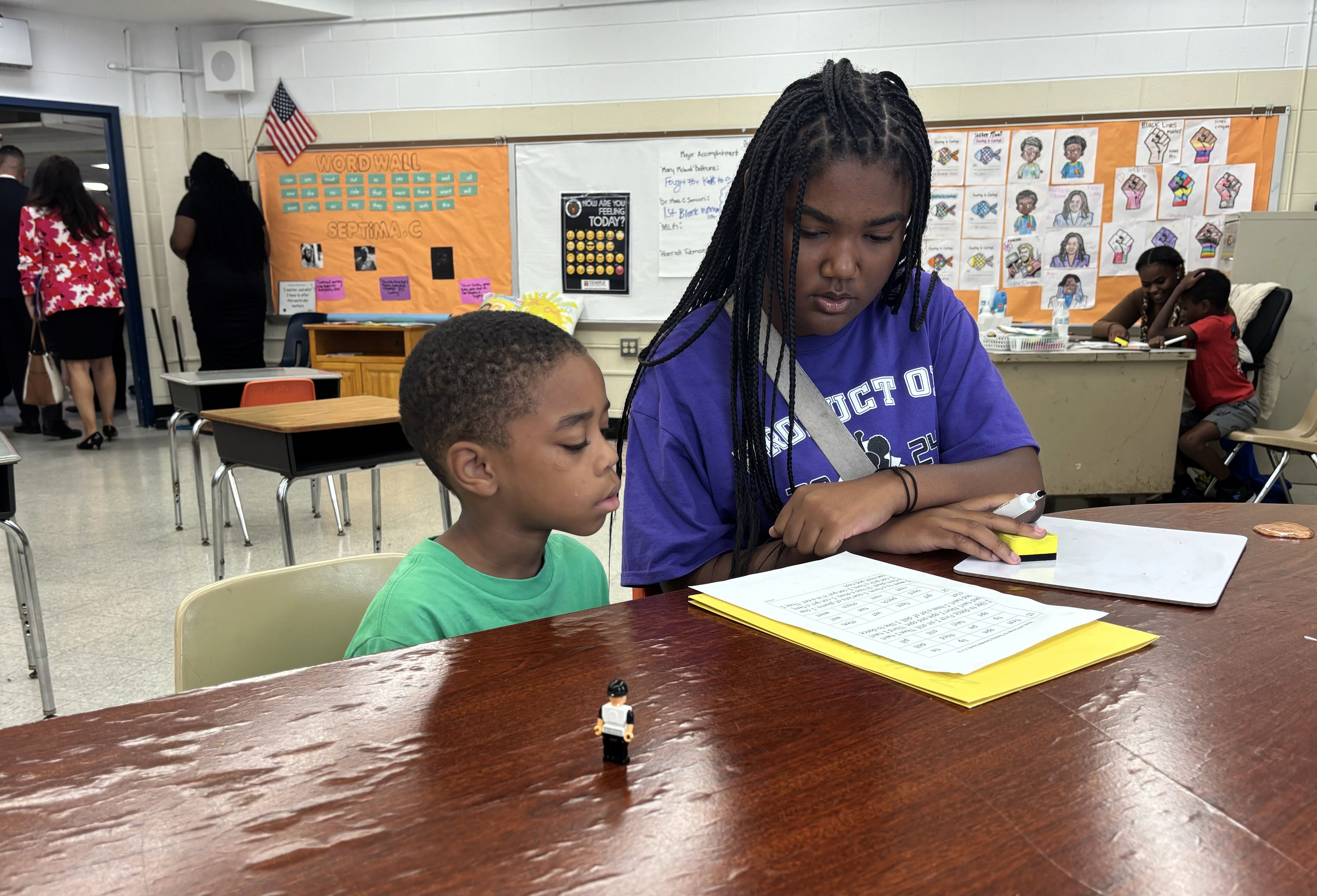Report on Scholarship Policy Changes at Metropolitan Community College and Implications for Sustainable Development Goals
Background and Scholarship Initiative
In 2019, Bob Benzel, a former art teacher at Ralston High School, alongside his husband Gerry Sullivan, established a fund supporting five scholarships at Metropolitan Community College (MCC). These scholarships specifically targeted single mothers, first-generation students, and LGBTQ learners, groups historically facing educational barriers. This initiative aligns with the United Nations Sustainable Development Goals (SDGs), particularly SDG 4 (Quality Education), SDG 5 (Gender Equality), and SDG 10 (Reduced Inequalities), by promoting inclusive and equitable quality education and lifelong learning opportunities for all.
Policy Changes and Their Impact
Since March, MCC and other Nebraska higher education institutions have revised scholarship awarding guidelines to comply with new federal directives from the U.S. Department of Education. These directives, issued under the previous administration, mandate the elimination of scholarships that provide preferences based on student background to avoid discrimination and maintain federal funding eligibility.
- MCC eliminated all preferential scholarships, including those benefiting marginalized groups.
- The decision affected fewer than 10 preferential scholarships, representing a small fraction of MCC’s total scholarship offerings.
- MCC provides approximately 200 scholarship types totaling $7 million, with about half of the student body receiving some form of scholarship aid.
Bob Benzel and Gerry Sullivan chose to withdraw their scholarship funds from MCC due to these changes and redirected $45,000 to the National Rainbow College Fund in California, supporting LGBTQ students. This shift highlights challenges in sustaining targeted educational support critical to achieving SDG 4 and SDG 10.
Broader Institutional Responses and Legal Challenges
Similar policy adjustments have been reported across multiple Nebraska institutions, including the University of Nebraska system, Chadron State College, Peru State, and Wayne State College. The University of Nebraska at Omaha (UNO) has faced legal complaints from national advocacy groups opposing race-based preferences, citing violations of Title VI of the Civil Rights Act of 1964.
- UNO removed preferential language from scholarships such as the Dreamers Pathway and HDR scholarships.
- The U.S. Department of Education is investigating UNO for alleged race-exclusionary practices in graduate programs.
- National scholarship programs, including McDonald’s HACER National Scholarship, have also revised eligibility criteria to comply with legal settlements.
These developments raise concerns regarding the balance between non-discrimination policies and the need for affirmative support to underrepresented groups, directly impacting SDG 10 (Reduced Inequalities) and SDG 16 (Peace, Justice, and Strong Institutions).
Stakeholder Perspectives and Economic Implications
MCC officials emphasize the necessity of policy changes to protect federal funding, which supports a broad student population. Chris Swanson, MCC’s Associate Vice President of Pathway Support Systems, stated the changes serve the greater good by safeguarding funding for all students. However, the withdrawal of targeted scholarships may undermine efforts to support vulnerable populations, potentially hindering progress toward SDG 1 (No Poverty) and SDG 8 (Decent Work and Economic Growth).
Bob Benzel expressed concern over the reduced support for marginalized students, questioning how those pushed into poverty without educational opportunities can advance. The potential closure of MCC due to funding loss would adversely affect the regional economy across multiple counties, illustrating the interconnectedness of education, economic growth, and community well-being as outlined in SDG 8 and SDG 11 (Sustainable Cities and Communities).
Legal and Social Context
- The changes follow a 2023 U.S. Supreme Court ruling prohibiting race as a factor in college admissions.
- Legal experts note the unprecedented nature of current federal interpretations, complicating the distinction between permissible and impermissible discrimination.
- Advocacy groups and educational leaders face political and legal pressures influencing institutional policies.
These dynamics affect the realization of SDG 4 and SDG 10 by shaping access to equitable education.
Conclusion and Future Outlook
The elimination of preferential scholarships at MCC and other institutions reflects a complex legal and political landscape impacting educational equity. While intended to comply with federal guidelines and protect funding, these changes may inadvertently hinder support for marginalized groups, challenging progress toward multiple Sustainable Development Goals, including Quality Education (SDG 4), Reduced Inequalities (SDG 10), and Gender Equality (SDG 5).
Stakeholders like Bob Benzel advocate for continued targeted support to enable disadvantaged students to overcome poverty and achieve social mobility. The redirection of scholarship funds to organizations outside Nebraska signals potential shifts in resource allocation and raises concerns about local educational equity and community development.
1. Sustainable Development Goals (SDGs) Addressed or Connected to the Issues Highlighted in the Article
- SDG 4: Quality Education
- The article focuses on scholarships, access to higher education, and support for marginalized groups such as single mothers, first-generation students, and LGBTQ learners.
- It highlights barriers to education caused by policy changes affecting preferential scholarships.
- SDG 5: Gender Equality
- Support for single mothers and women pursuing education is emphasized.
- Issues of discrimination and equal access to education for women and marginalized genders are implicit.
- SDG 10: Reduced Inequalities
- The article discusses affirmative action, preferential scholarships for underrepresented minorities, LGBTQ students, and DACA recipients.
- It addresses systemic inequalities in access to education and resources.
- SDG 16: Peace, Justice and Strong Institutions
- The article involves legal and policy frameworks, including compliance with civil rights laws and federal guidelines.
- It discusses issues of discrimination, legal complaints, and institutional responses.
2. Specific Targets Under Those SDGs Identified Based on the Article’s Content
- SDG 4: Quality Education
- Target 4.3: Ensure equal access for all women and men to affordable and quality technical, vocational and tertiary education, including university.
- Target 4.5: Eliminate gender disparities in education and ensure equal access to all levels of education and vocational training for vulnerable populations.
- SDG 5: Gender Equality
- Target 5.5: Ensure women’s full and effective participation and equal opportunities for leadership at all levels of decision-making in political, economic and public life.
- SDG 10: Reduced Inequalities
- Target 10.2: Empower and promote the social, economic and political inclusion of all, irrespective of age, sex, disability, race, ethnicity, origin, religion or economic or other status.
- Target 10.3: Ensure equal opportunity and reduce inequalities of outcome, including by eliminating discriminatory laws, policies and practices.
- SDG 16: Peace, Justice and Strong Institutions
- Target 16.6: Develop effective, accountable and transparent institutions at all levels.
- Target 16.b: Promote and enforce non-discriminatory laws and policies for sustainable development.
3. Indicators Mentioned or Implied in the Article to Measure Progress Towards the Identified Targets
- SDG 4 Indicators
- Proportion of students receiving scholarships or financial aid (implied by the number and types of scholarships offered and awarded).
- Enrollment rates of marginalized groups such as single mothers, first-generation students, LGBTQ learners, and underrepresented minorities in higher education.
- Retention and graduation rates of these groups (implied by concerns about dropout rates and access to education).
- SDG 5 Indicators
- Proportion of women and girls receiving scholarships or educational support.
- Access to education for single mothers and gender minorities.
- SDG 10 Indicators
- Number of scholarships targeted at underrepresented minorities, LGBTQ students, and DACA recipients (implied by the discussion on preferential scholarships).
- Legal compliance indicators such as number of complaints or investigations related to discrimination in education.
- SDG 16 Indicators
- Number of institutions complying with non-discriminatory policies and federal laws.
- Number of complaints filed and investigations initiated regarding discriminatory practices.
4. Table of SDGs, Targets and Indicators
| SDGs | Targets | Indicators |
|---|---|---|
| SDG 4: Quality Education |
|
|
| SDG 5: Gender Equality |
|
|
| SDG 10: Reduced Inequalities |
|
|
| SDG 16: Peace, Justice and Strong Institutions |
|
|
Source: flatwaterfreepress.org







